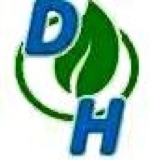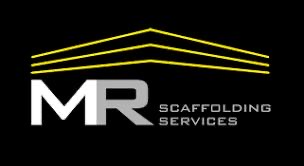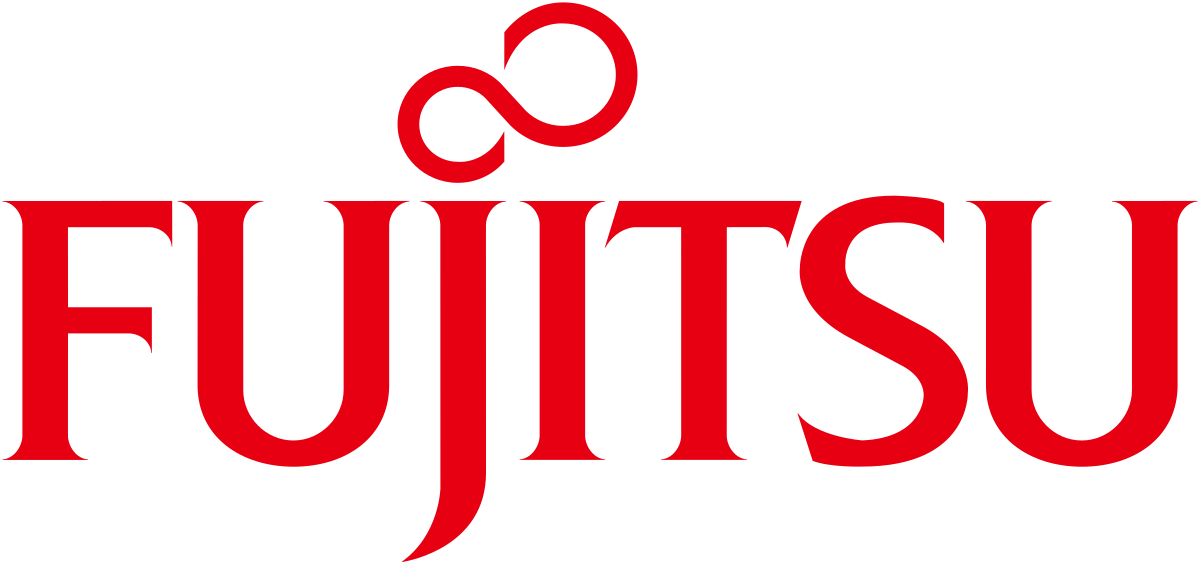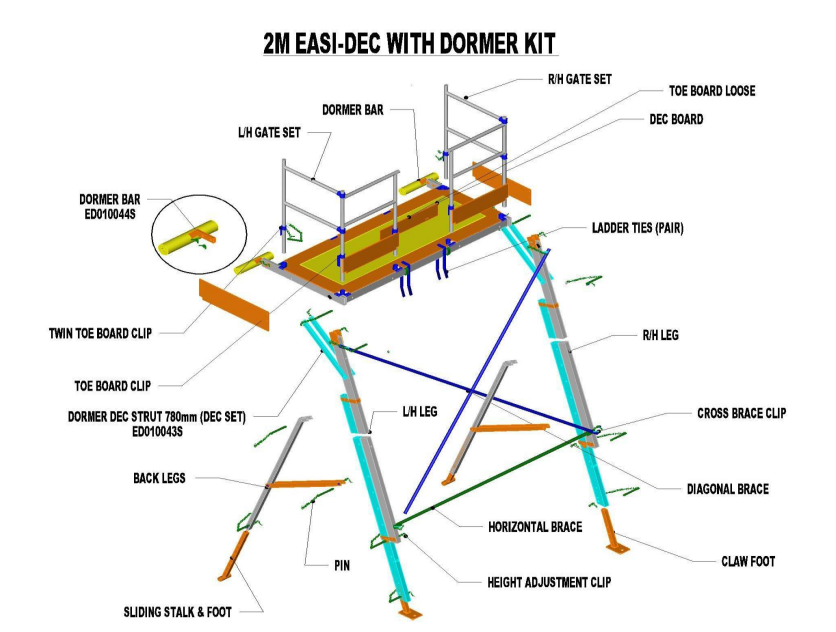Title Page
-
Site conducted
-
Conducted on
-
Prepared by
-
Location
-
Additional team members on-site
-
First and Last Name
-
Has additional team member got PPE?
-
Team member MUST NOT carry out any works and is not to be within any working sites
-
Details of Task
- Survey
- OH Installation
- OH Fault
- UG Installation
- UG Fault
- Internal Fault (LOS, WiFi)
Hazards relevant for work
-
Identify all relevant hazards associated with the work
- Slip, trips and falls
- Falls from height
- Potential Dropped Object
- Lone working
- Adverse weather conditions
- Poor light /visiblity
- General public
- Working in highways
- Hazardous gases - Asphyxiation
- Hazardous gases - explosion / fire
- Electricity
- Use of mechanical pant & equipment
- Falling/ flying objects
- Mechanical lifting
- High or low temperatures
- Manual Handling
- Confined Spaces
- Entrapment
- Hypodermic Needles
- Sharps/Shards
- Others
-
List other ther Hazards identified
-
Other Hazards
- Gas Detection Monitor available and checked to ensure it is working and in calibration
- Gas monitor used to detect gases when lid is lifted to ensure no hazardous gases are present.
- Gas monitor lowered into the chamber and secured to ensure continuous monitoring whilst work continues.
- Operatives/engineers will wear gloves whilst undertaking work in chambers to protect against biohazards like Leptospirosis.
- Operatives/ engineers are aware of biohazards and have suitable washing facilities on site to enable effective hand washing.
- Check for discarded syringes to avoid needles stick injurys
- Follow dealing with sharps / syringes safe system of work and ensure needles are placed correctly in a sharps container.
- other
Control Measures - identify type of work and relevant controls from the list
General Safety and House-Keeping
-
Control Measures
- Site maintained tidy to avoid trip hazards
- Vehicles parked in a safe place, not causing any obstruction
- Van is tidy and equipment is secure
- Emergency equipment present on site
- Appropriate PPE is available on site and used where necessary
-
Are there any dangerous or free roaming animals in the property?
-
Identify relevant controls
- I have checked with the resident and all animals are secured away from the work area
- There are dangerous and/or free roaming animals that are unable to be secured/separated from the work area
-
Vulnerable People
-
Identify relevant controls
- No work is permitted on property where lone vulnerable people are present unless agreed and always have 2 Jurassic employees present
- 2 Jurassic employees are present to complete the work
- Unable to complete works due to being a lone worker
-
Identify any addition controls you are undertaking
-
undefined
- Gas Detection Monitor available and checked to ensure it is working and in calibration
- Gas monitor used to detect gases when lid is lifted to ensure no hazardous gases are present.
- Gas monitor lowered into the chamber and secured to ensure continuous monitoring whilst work continues.
- Operatives/engineers will wear gloves whilst undertaking work in chambers to protect against biohazards like Leptospirosis.
- Operatives/ engineers are aware of biohazards and have suitable washing facilities on site to enable effective hand washing.
- Check for discarded syringes to avoid needles stick injurys
- Follow dealing with sharps / syringes safe system of work and ensure needles are placed correctly in a sharps container.
- other
-
Does the work require any drilling into the customers property?
-
Has a multi detector been used to check for services and studs?
-
If a multi detector hasn't been used, what control measures are in place?
-
If drilling a through hole. Has the exit area been checked for obstacles and cordoned off?
-
Any additional controls you are undertaking?
-
Does the work require access to a loft space?
-
Access available via appropriate means (loft ladder with secure fixing)
-
Ceiling joists are properly boarded
-
Adequate lighting
-
GDU in calibration date and shows it is safe to enter
-
Any additional controls you are undertaking?
-
Does the work involve site set up (Streetworks)
-
Identify relevant controls
- Undertaken Streetworks Assessment prior to set up
- APFN information board provided with the correct Streetworks permit number clearly indicated
- I have checked the area and there are no high risk groups (schools, residential homes etc) like to be affected.
- Knocked on doors before work begins to provide property owners information and check they are aware of works.
- The barriers provide a suitable enclosed site with fixed barriers
- Suitable warning signage provided - ln accordance with Red Book -Safety at Street Works and Road Works Code of Practice.
- Welfare arrangements provided on site including washing arrangements
- If site set up to be left unattended it is secure, all plant and equipment contained within fencing and safe for general public.
- Works undertaken with traffic light control set up
- Works undertaken with road closure
- other
-
Other Controls Identified
-
Does the work involve Manual handling activities?
-
Identify relevant controls
- Vehicles positioned to reduce the need to carry equipment and materials long distances.
- All site personnel have received manual handling training and understand the importance of following ergonomic techniques
- We will be undertaking manual handling having regard for safe weights - considering that 25kgs is the safe weight for the average male at waist level but reduces if stretching or twisting is required.
- Lifting and carrying equipment will be used to help with the lifting of Lids - minimum lid lifter and roll bar.
- Mechanical lid lifter used to aid lifting.
- 2 man or multiply person lifts are required and will be undertaken in a controlled manner.
- other
-
Add any additional controls you are undertaking
-
Does the work involve working in Chambers?
-
Identify relevant controls
- Gas Detection Monitor available and checked to ensure it is working and in calibration
- Gas monitor used to detect gases when lid is lifted to ensure no hazardous gases are present.
- Gas monitor lowered into the chamber and secured to ensure continuous monitoring whilst work continues.
- Operatives/engineers will wear gloves whilst undertaking work in chambers to protect against biohazards like Leptospirosis.
- Operatives/ engineers are aware of biohazards and have suitable washing facilities on site to enable effective hand washing.
- Check for discarded syringes to avoid needles stick injurys
- Follow dealing with sharps / syringes safe system of work and ensure needles are placed correctly in a sharps container.
- other
-
Identify any addition controls you are undertaking
-
Does the work involve Roding and roping activities
-
Identify relevant controls
- Equipment checked and in good order
- Equipment will be stored on site and in the vehicle in a safe location and in a way which prevents damage or hazards.
- Equipment will not be left unattended where it could be tampered with.
- Gloves and safety glasses worn by all personnel involved in rodding and roping
- Others
-
Identify any additional controls you are undertaking
-
undefined
- Gas Detection Monitor available and checked to ensure it is working and in calibration
- Gas monitor used to detect gases when lid is lifted to ensure no hazardous gases are present.
- Gas monitor lowered into the chamber and secured to ensure continuous monitoring whilst work continues.
- Operatives/engineers will wear gloves whilst undertaking work in chambers to protect against biohazards like Leptospirosis.
- Operatives/ engineers are aware of biohazards and have suitable washing facilities on site to enable effective hand washing.
- Check for discarded syringes to avoid needles stick injurys
- Follow dealing with sharps / syringes safe system of work and ensure needles are placed correctly in a sharps container.
- other
-
undefined
- Gas Detection Monitor available and checked to ensure it is working and in calibration
- Gas monitor used to detect gases when lid is lifted to ensure no hazardous gases are present.
- Gas monitor lowered into the chamber and secured to ensure continuous monitoring whilst work continues.
- Operatives/engineers will wear gloves whilst undertaking work in chambers to protect against biohazards like Leptospirosis.
- Operatives/ engineers are aware of biohazards and have suitable washing facilities on site to enable effective hand washing.
- Check for discarded syringes to avoid needles stick injurys
- Follow dealing with sharps / syringes safe system of work and ensure needles are placed correctly in a sharps container.
- other
-
undefined
- Gas Detection Monitor available and checked to ensure it is working and in calibration
- Gas monitor used to detect gases when lid is lifted to ensure no hazardous gases are present.
- Gas monitor lowered into the chamber and secured to ensure continuous monitoring whilst work continues.
- Operatives/engineers will wear gloves whilst undertaking work in chambers to protect against biohazards like Leptospirosis.
- Operatives/ engineers are aware of biohazards and have suitable washing facilities on site to enable effective hand washing.
- Check for discarded syringes to avoid needles stick injurys
- Follow dealing with sharps / syringes safe system of work and ensure needles are placed correctly in a sharps container.
- other
-
Does the work involve working at height?
-
Does the work require using ladders?
-
Have ladder checks been carried out before use?
-
Ladder checks must be completed prior to working at height. STOP WORKS and complete checks before continuing
-
Are ladders in use tagged with an in date ladder inspection?
-
Is the correct PPE for WAH available and being used? (Hard Hats, Climbing boots & Gloves)
-
If PPE (Hard hat, Climbing boots & Gloves) are not available/worn - STOP WORKS
-
Is a second engineer required to assist to ensure works completed safely? (Observation/Ladder footing)
-
Is a second engineer on site to be able to assist?
-
If works cannot be completed safely as a lone worker, STOP WORKS and reschedule with 2 engineers
-
Are the weather conditions safe for WAH?
-
Does task involve working at Height from a pole; any Pole issues call the Pole Helpline on 0330 1233304 IF YOUR ANSWER IS NO TO ANY OF THE QUESTIONS RELATING TO POLE CLIMBING DO NOT CLIMB AND CONTACT YOUR SUPERVISOR FOR ADVICE.
-
Birth / Dhobie Mark checked
-
Is there an A558 Pole Test label in place
-
Pole DP Number in place
-
When was the Pole last inspected (State if Pole is new, or label is missing) If required call Pole Help line
-
Pole Depth Checked
-
Hammer Hollow Check Conducted
-
Probe Rot Test Conducted
-
Are existing cables/dropwires above the minimum required height to allow safe climbing? (minimum 5.2m at lowest point if crossing a carriageway) Rods telescopic to be used to check cable heights.
-
Pole checked for physical signs of damage (2/3 pole to be checked)
-
Is climb zone free from hazards
-
Are struts and stays in good condition
-
Ground conditions are suitable for ladder positioning
-
Ladder angle conforms to 1 in 4 ratio and is secured once climber is in position
-
Harness and fall arrest / Fall restraint equipment in serviceable condition and inspected under LOLER requirements
-
Tool bags / tool tethers/Lanyards in use
-
If wind speed is in excess 23mph work to stop and Supervisor be contacted
-
Any other additional controls you are undertaking
-
Does the work involve work on a shared user pole including Low Voltage?
-
Do you have a second person?
-
Please make sure a second engineer attends before you start your climb.
-
Are existing cables/dropwires above the minimum required height to allow safe climbing? (minimum 5.2m at lowest point if crossing a carriageway) Rods telescopic to be used to check cable heights. Rods Telescoping and Gloves IR to be used to measure power line height.
-
Are power cables also at a safe height and is there sufficient spacing between power cables and the route of the span. Rods Telescoping and Gloves IR to be used to measure power line height. (Refer to your glovebox guide)
-
Have you checks pole and identified it contains Low Voltage - remember if you are not sure you MUST not proceed until you are sure it doesn't include any high voltage equipment? Work on poles with High Voltage is not permitted.
-
Are you wearing suitable Flame-retardant overalls and have appropriate insulating gloves for undertaking work?
-
If pole cabling involved have you got suitable Blue fibreglass ladders insulating suitable for electrical work.
-
If using a MEWP does it have and insulated fibreglass bucket (no metal frame)
-
Have you got suitable insulated hand tools and where required battery operated hand drill.
-
Have you identified your ground support person and have you got suitable means of communication throughout the work.
-
Name of person
-
If using MEWP ground support person understands how to lower the MEWP
-
Ground support sign to demonstrate they have been fully briefed and understand the importance of monitoring throughout the work at height process due to increase risk from LV conductors.
-
You have identified the lowest/ nearest electrical conductors to location of work and understand the safe working distance from these.
-
You have identified the lowest neutral or live wire and understand the safe working distance from this.
-
You have considered weather conditions and identified it is safe to proceed.
-
You have considered all environment hazards and other factors and agree it is safe to proceed with the work.
-
Does task involve working at Height from a MEWPs IF YOUR ANSWER IS NO TO ANY OF THE MEWP RELATED QUESTIONS DO NOT USE AND CONTACT YOUR SUPERVISOR FOR ADVICE
-
Vehicle/MEWPs pre use checks conducted
-
MEWPs LOLER certification in date
-
Ground stable and suitable for MEWP set up
-
Operator has relevant training to operate MEWP
-
Work site correctly set up with relevant barriers / cordons in place when required
-
Area around and above work site assessed for electrical and trapping risks
-
Minimum safe distances from High / Low Voltage and Joint User Poles can be maintained
-
Windspeed is below 28mph and verified. (You MUST feel safe to continue)
-
Tool Bags, Lanyards/Tethers used
-
Lanyard and fall arrest/restraint worn and in date certification
-
Rescue plan in place and all individuals of the team are aware of the procedures
-
Any other additional controls you are undertaking
-
Does the work involve Splicing Operations
-
Identify the relevant controls
- Shards to be placed in sharps container
- No food or drink to be consumed in area of splicing operations
- Barriers to be erected to prevent unauthorised access to area of works
- If using heat shrink equipment ensure any propane is secure and checked for leaks prior to use
- All flammable materials are removed from area prior to work commencing
- Continuous gas monitoring when working inside chambers
- Equipment is sufficiently cool prior to stowing away
- Fire extinguisher is in close proximity to work area
- Others
-
Any other controls you are undertaking
-
Does the work involve Sub Duct Installation
-
Identify the relevant controls
- Bullet connector is securely fitted
- Before use checks are conducted on the winch
- Suitable rope is being used for size of sub duct being installed
- Operation aware of potential pinch points on winch and cable drum
- Suitable distance maintained from operation in event of rope snapping (Released energy)
- PPE worn, Hard Hat, safety glasses/goggles gloves worn
- Others
-
Any other controls you are undertaking
-
Does the work involve Blowing Operations
-
Identify the relevant controls
- Pre user checks conducted on compressor / equipment
- Anti whip fittings in place
- Cable drum is secure
- Operator is aware of potential pinch points
- PPE worn; helmet, glasses/goggles, gloves hearing protection
- Compressed air not to be used to blow debris/dustfrom clothing
- Others
-
Any other controls you are undertaking
-
Are there additional controls required due to weather conditions / light levels
- Yes
- No
- N/A
-
Identify relevant controls
- Additional artificial lighting is provided to enable work to continue.
- Weather conditions such as driving rain, icy and snow of fog which reduce the visible for drivers and pedestrains have been considered and stopping distances considered in site set up.
- Ice and snow increase risk of slips and trips so work area treated with grit and salt.
- Work force ensuring their skin is covered to avoid sun burn - sun cream worn to protect exposed areas.
- Working in high temperatures and work force know to drink plenty of water and rest in shade when possible.
- Suitable warm clothing provided and worn as weather conditions cold - especially gloves for use of power tools
- Due to windy conditions barriers and signs have been weighted down with sandbags.
- All site members know they should stop work if conditions are so poor that it affects their ability to work safely.
- other
-
Add any additional controls you are undertaking
-
Identify any additional controls not previously listed
Sign off Section -POWRA is an important part of any site work and it is essential that everyone is aware of the details of this document and the agreed safe working methods. It is good practice to get everyone involved in POWRA as this ensures engagement and understanding plus can improve quality.
-
All personnel listed on the POWRA understand the hazards and control measures detailed
-
Site Team Member sign to show the have understood POWRA
-
Site Team Member sign to show the have understood POWRA
-
Site Team Member sign to show the have understood POWRA
-
Site Team Member sign to show the have understood POWRA
-
I confirm that the control measures above will be followed and I will ensure everyone site will follow the agreed safe methods of work agreed.
-
APFN Supervisor on site and reviewed POWRA
-
Name
-
Comments












